freelancing | freelancing jobs by skillmonde | skillmonde
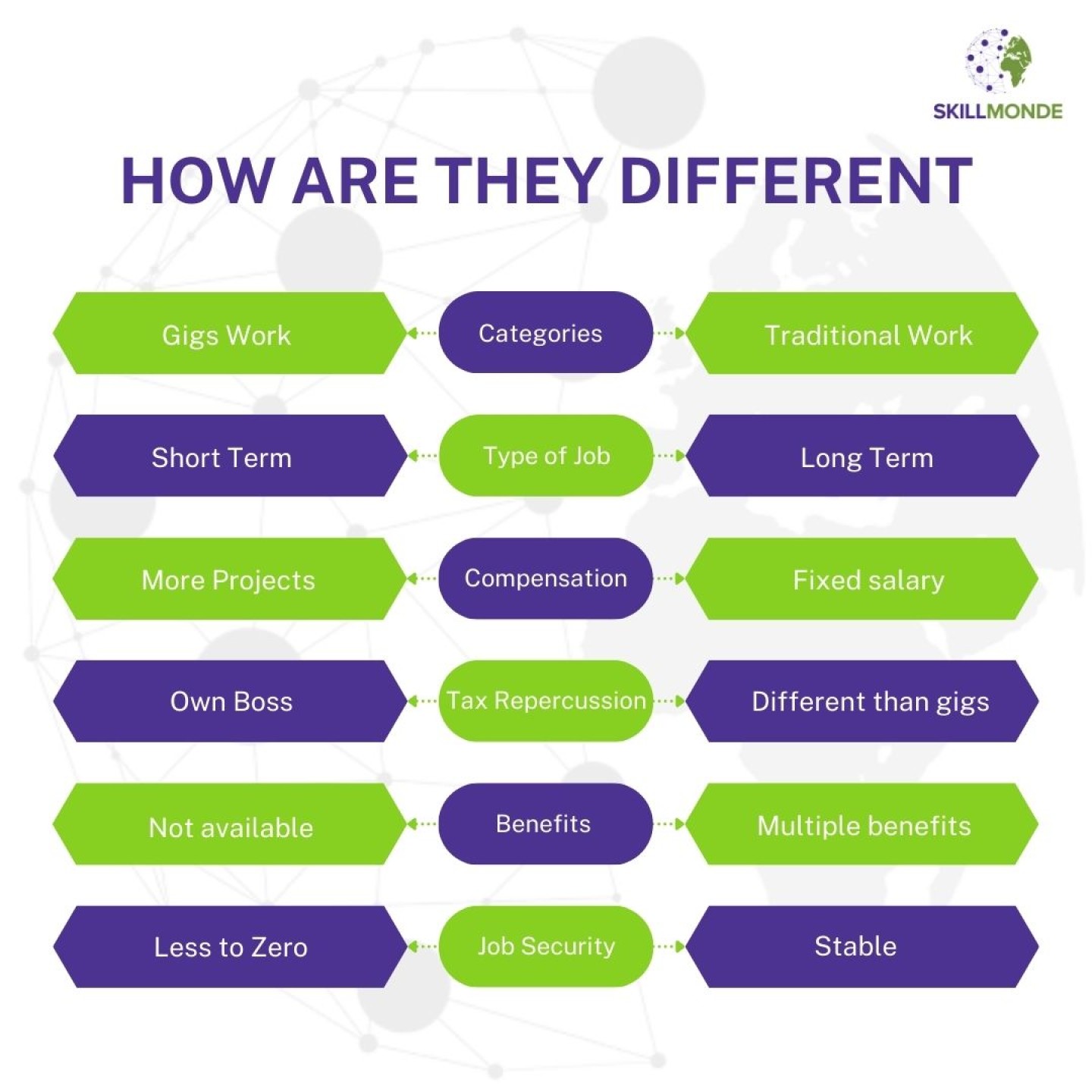

freelancing | freelancing jobs by skillmonde | skillmonde

Transformation phase in BFSI:
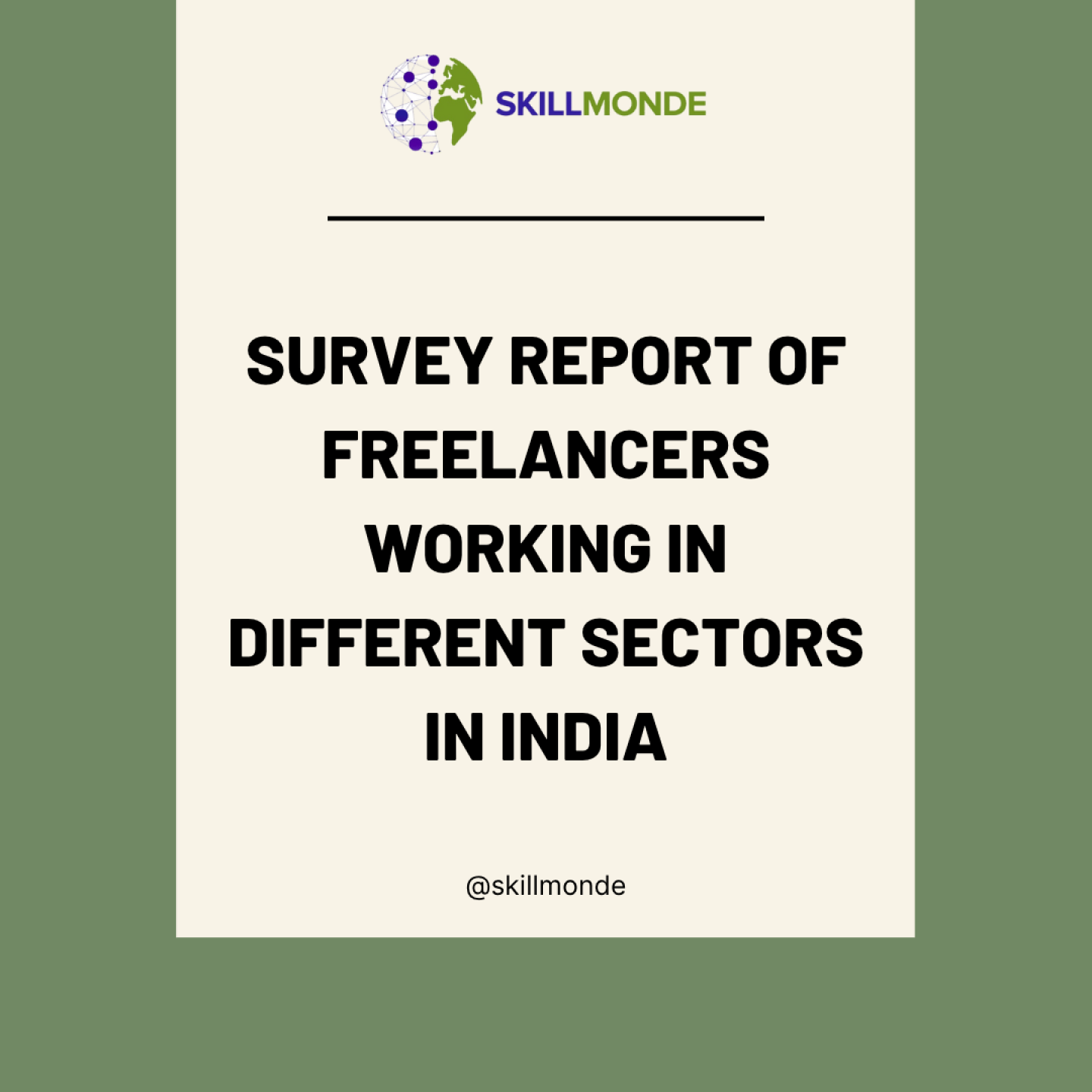
Freelancers survey report of working in different sectors in India:
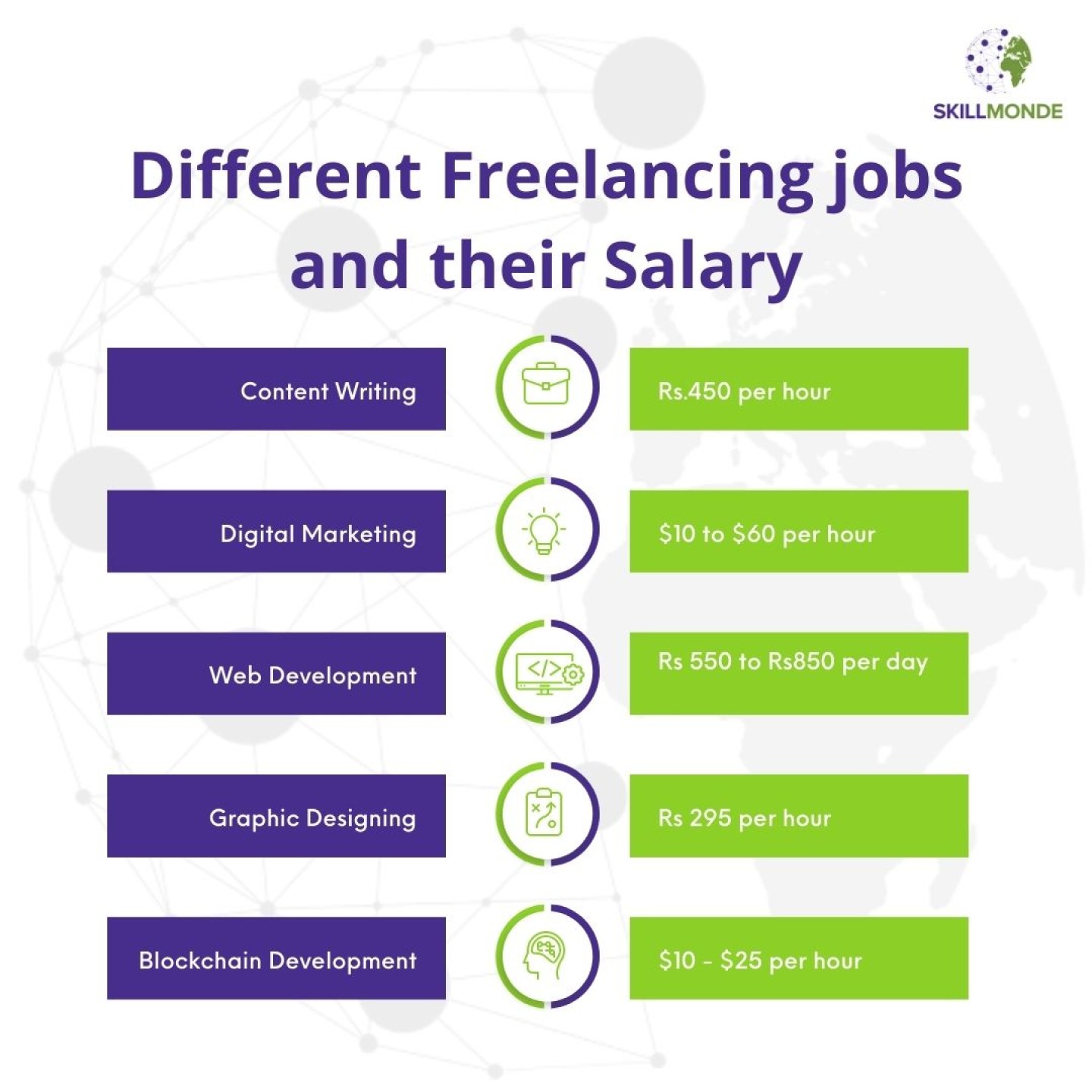
What is the average Freelancing income?

how to get a gig job?
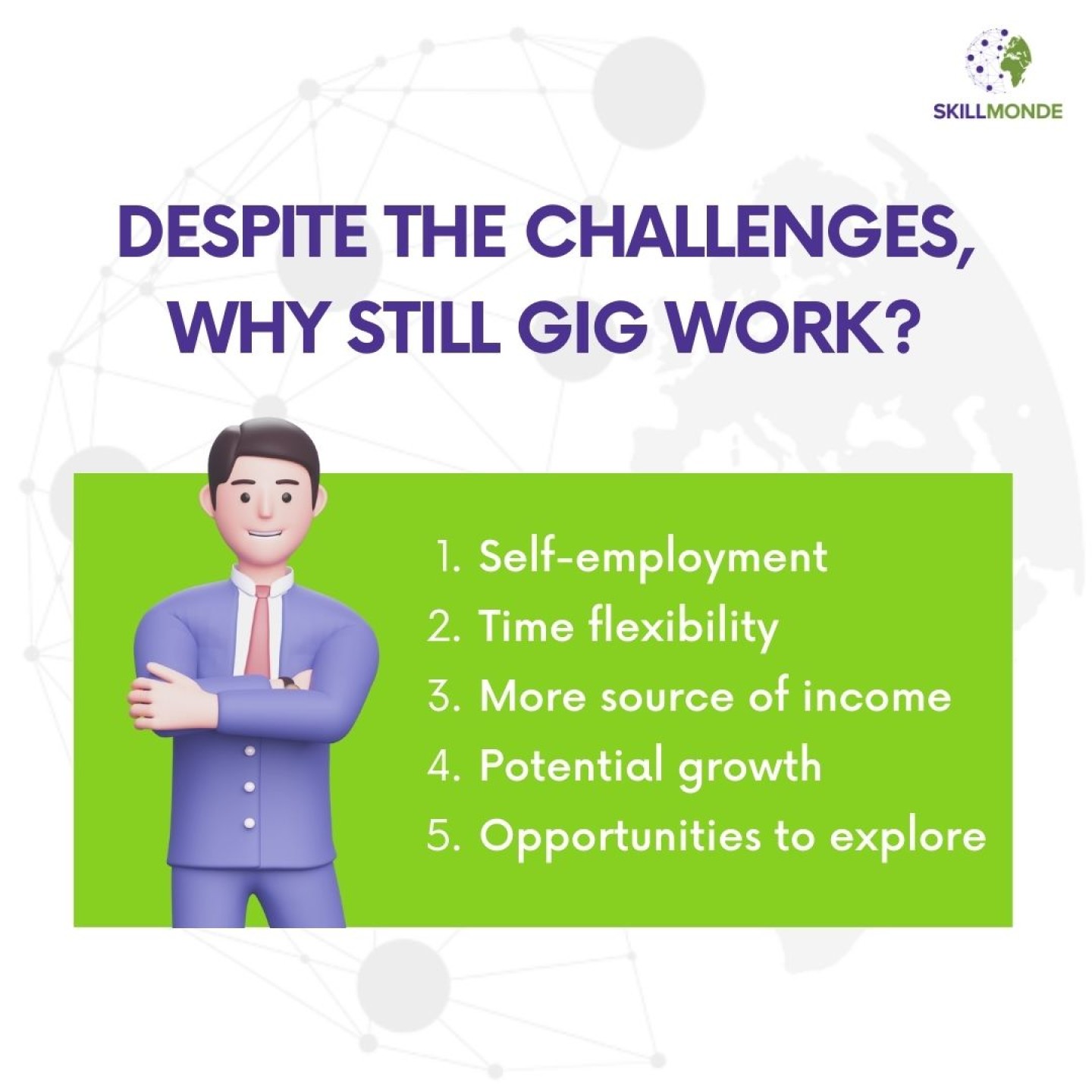
what is gig work?
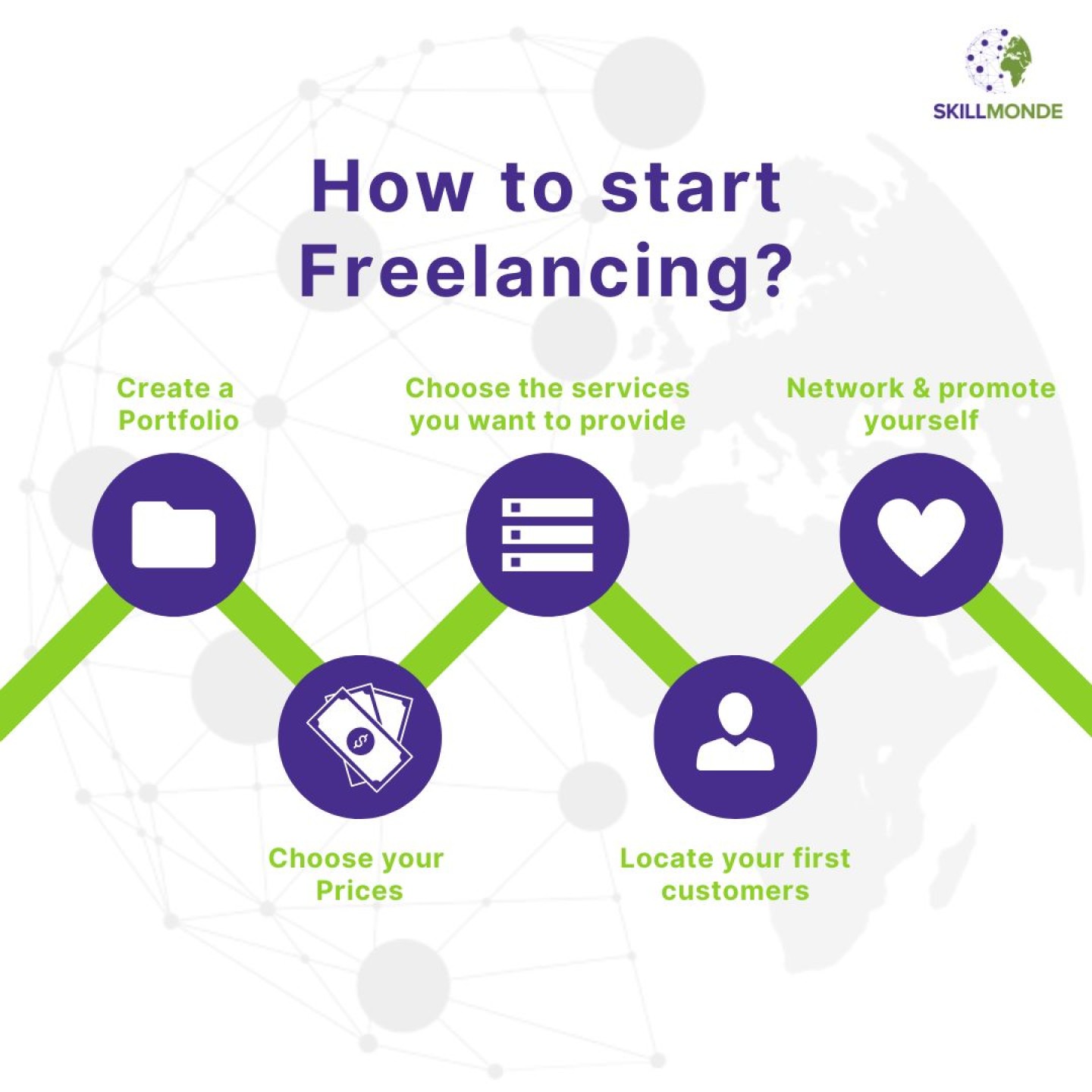
How to start Freelancing?
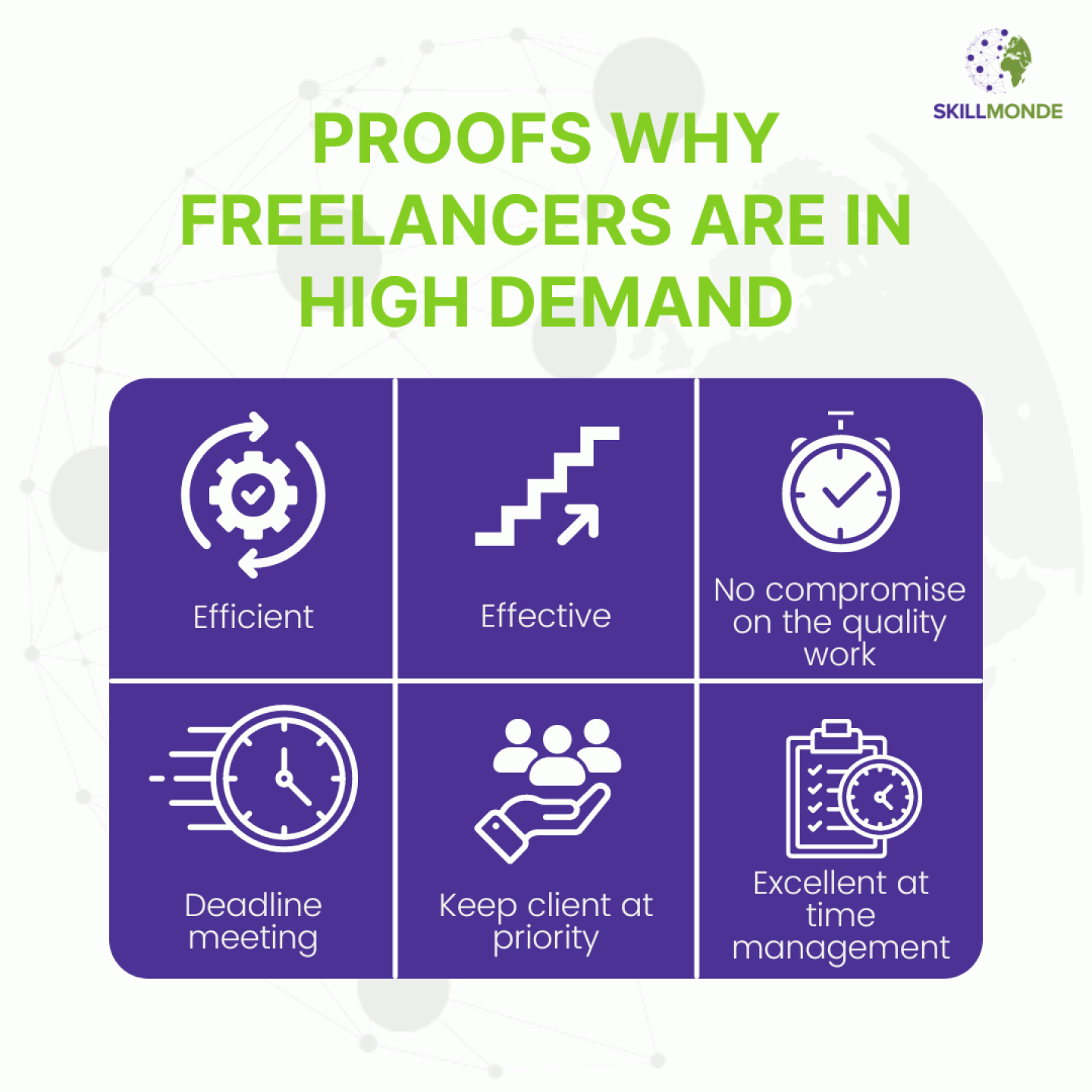
Freelancers have the freedom to select the projects and clients they wish to work on because they are not bound to a specific company. As more people explore ways to make a living while retaining their independence and freedom, this line of work is growing in popularity.
Freelancers can perform a wide variety of jobs. Writing and editing, graphic design, web development, photography, and social media management are a few examples of typical freelance jobs. Additionally, freelancers could provide coaching, tutoring, or consulting services. A freelancer's exact line of work will depend on their expertise, experience, interests, and the demands of their clients.
The publishing industry's freelancers can offer a range of services to authors, publishers, and other clients. A few common types of freelancing in the publishing sector are editing and proofreading, book design and layout, and marketing and promotion.
Freelancers might provide writing and research services or focus on a certain branch of publishing, such as children's novels or scholarly publications. In the publishing industry, independent contractors could collaborate with writers directly to develop and polish their work or with publishers. This will in turn aid with the printing and distribution of books and other publications.
Depending on the type of job they do and the contract they have with their clients, freelancers may receive a variety of payments. While some independent contractors bill by the hour, others may set a predetermined fee for a particular assignment.
On a retainer basis, where they are paid a set rate for a set quantity of work each month, freelancers can also offer their skills. Most of the time, freelancers are paid after a project is finished or regularly, such as once a week or once a month.
Freelancers may also receive payment through more conventional means like checks or bank transfers or through the internet services like PayPal.

What are the Challenges Freelancers have to face?
Freelancers often complain about the validation of the work and the payment thereafter follows. There are several occasions where freelancers put their 100% time and effort to complete the assigned project. Only to find that the contractor has ghosted them. These are the examples of hurdles faced by freelancers, others also include:
Freelancing is nevertheless the most preferred work among professionals as well as newbies. It gives a sense of liberation and time to enjoy some self-time. With the right connection and contact with firms, companies, and contractors, freelancing work can bring a good deal of money into your pocket.
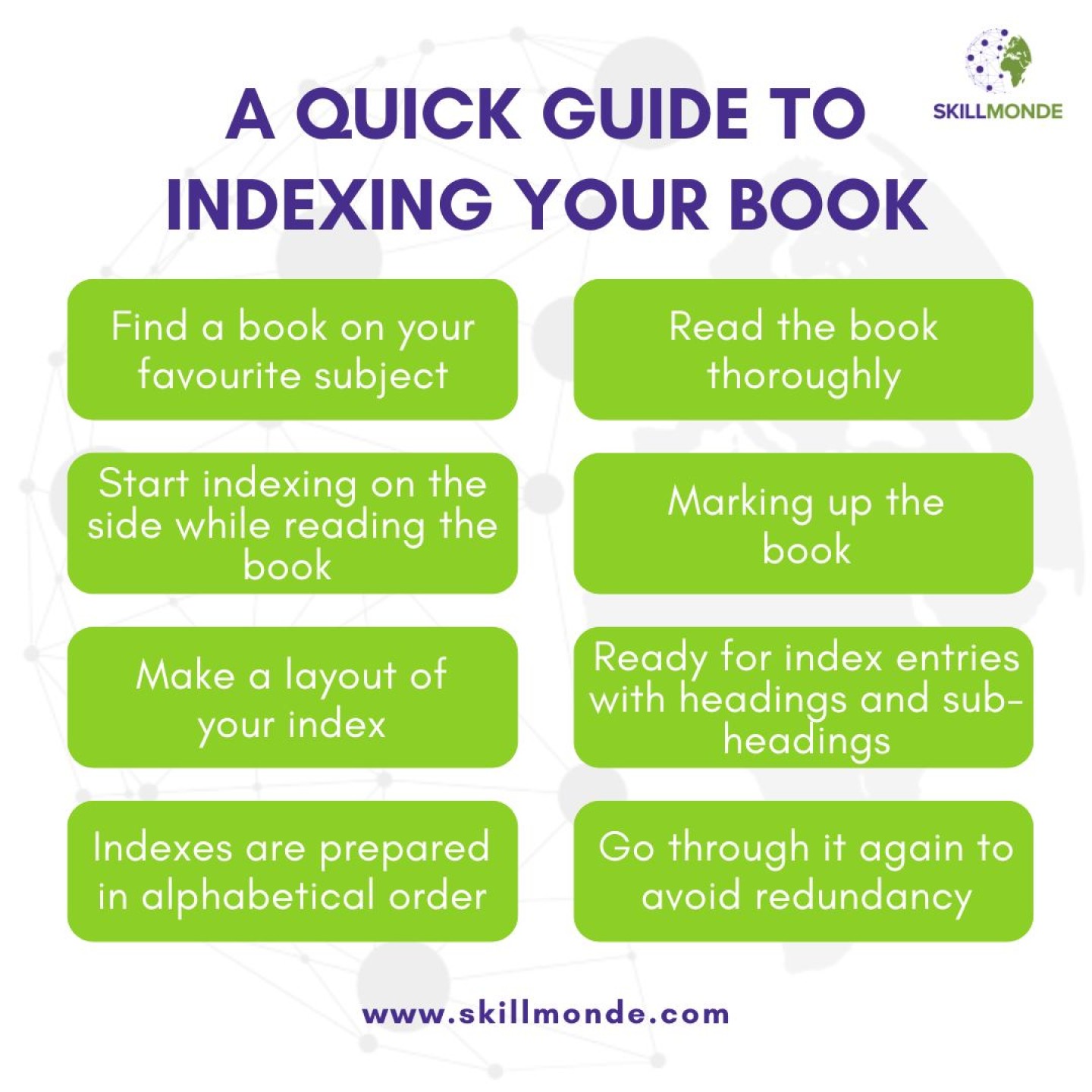
Imagine the pain of going through the complete document over and again to find the key information. Wouldn't it have saved a great deal of time and energy, had the important keywords and data singled out separately in the book with the page numbers on it? This work is called indexing in the publication process and treated as a final draft. It is executed at the end of the publishing process along with proofreading.
Indexing refers to cross-examine of facts like names, titles, places, scientific terminology, publication dates, and analyze italicized words contained in the written text. The readers find it easy to access relevant data after indexing in alphabetical order. We generally find the index on the last few pages of the book.
Index is created after proofreading and finalizing the page proofs. The readers while reading a book, use the index as reference tool to direct to the concepts and key content. Although publication indexing concentrates only on important terminologies and data in the book, focus is more on pointing out significant relevant information. We see this mostly in research books as well as non-fiction writing while most fiction books do not cover indexes.
Publication Indexing requires sharp eyes to produce the necessary information that matches the pages listed in the book. Abstracting and Indexing Service makes it easy to search in the database of the product and is carried out at the same stage when the final proofreading is underway. Most Publishing Houses keep Abstracting and Indexing services available to the writers. It is significant for the author to approve of the changes suggested by the editor for indexing.
The editor will review these corrections again that include copy editing and revising the index to check style consistency. The content will then integrate all the additional and missing parts suggested by the editor after which, will be ready for final proofreading.

5 Steps to publication indexing
Indexing turns out to be fun if you have the knack for reading everything that comes to your hand. The more you read, the better you understand the purpose of indexing. How do we know that an index is good? A clear and detailed index serves its purpose.
For beginners who are thinking to give indexing a shot, here are a few tips to start with:
You can always master the art of indexing if you can devote your time to reading and develop the practice of finding the important topics in it.
-Use pertinent keywords in your title and abstract
-Make sure your piece is well-written and of high quality
-Promote it on social media and other platforms.
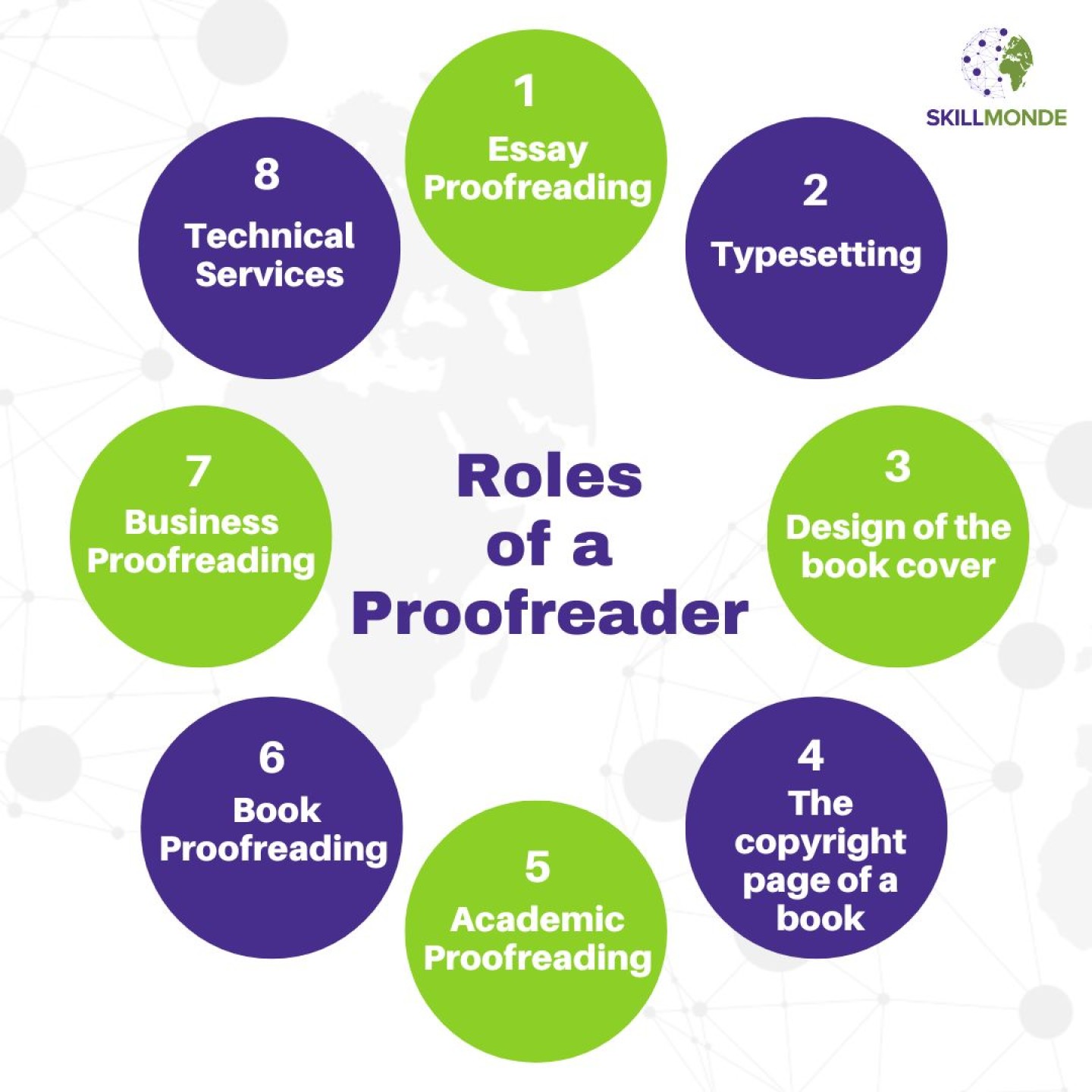
Proofreading is becoming a highly lucrative job. Many people are opting for online proofreading jobs from the comfort of home although, not all proofreading jobs that we find online are legitimate. Many companies are found to be scams. It is, therefore, essential to find out the genuine ones that pay for your proofreading work.
It takes very short period to acquire proofreading skills and you can start earning from it. Proofreading is the final work before publishing the article. It is a critical stage after writing and editing. Proofreading is an assignment of revising the edited file for error checks. Technical corrections may be minor as the text is already in an edited version. This work involves examining the accuracy of the content before sending it for approval for submission.
It may sometimes demand different types of proofreading for there are different types of documents. Without proofreading, no literary work in this world would have made sense and people would have acquired an incorrect understanding of the language. So, if you have a knack for catching mistakes in a given sentence then there are high chances that you will prove to be a good proofreader.
People in the writing industry already know that proofreading and copy editing are two separate jobs to do. For beginners, copy editing involves:
It is only after editing, that the content is given for proofreading. A good proofreader should be familiar with the writing style guide, be it Associated Press Stylebook or the Chicago Manual of Style.
The writing industry is only booming and there is nothing to stop it. Where writers are hiring proofreaders to avoid typographical errors, its demand is simultaneously increasing which is evident from the types of content we see on the social platform.
Starting a proofreading business comes with advantages and disadvantages. It is not always smooth sailing in the business. While it is highlighted that a proofreading job is easy that pays you well, it can be challenging as well at times.
We shall narrow down the bright side and also the tough side of this job:
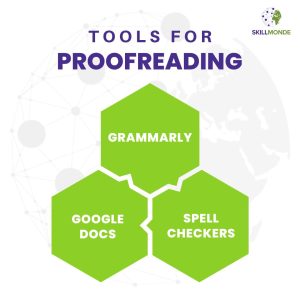
Tools for proofreading | online proofreading jobs | Skillmonde |
Various tools are available online to check the accuracy of your content. To name a few, they are:
As a beginner at proofreading, advertisement of your past work and enrolment in social media is important for your work to attract clients.
There are different services of proofreading available in the market which are listed below:
This proofreading is mostly called by students from college and even High school where essay competitions are held.
This is often confused with typography because it sounds similar and is assumed to be the same. Typesetting is the art of designing and placing the text on pages that include deciding the right text size and font, margins, and styling of the pages. This process is usually kept until the end of the publishing process.
Everything is judged by the cover of a book. It's design and graphics are significant to attract readers.
A copyright page is usually kept right after the title page that is back of it. This page covers
This work is the same as that of essay proofreading. The difference lies in the standard. The standard of proofreading is much higher and needs decoration of the paper for publication. Journals, dissertations, and thesis are a few examples in this category.
Proofreading books and eBooks is another service which is in demand.
Whether be it a small or big business, the need for content to advertise its products and services is always in demand to publish either on the internet or paper. The content prepared for advertisement also requires proofreading.
For this type of proofreading, people with technical backgrounds prove best to understand the technical terms and jargon.
Proofreading jobs can start from correcting spelling, grammar, and punctuation to reaching a whole different level of legal, technical, and scientific documents. This comes with experience and growth in your professional arena, nonetheless, you can start when you think you are ready for the job and make your way to the top in this industry.
Several authentic websites hire proofreaders where you can work as a freelancer. You may not find jobs under Proofreader title because their work is integrated in the profile of content developer, editor, copy editor, and such other relevant names.
Work from anywhere
Time flexibility
Work with various clients
Earn extra money
Exploration gets diverse
Computer system with good Internet connectivity
Software tools like Microsoft Office, Google docs, etc
Proofreading tools like Spell-checker, Grammarly, and others
Good command of the language
Effective time-management
Tight deadlines
Feedback from clients
Inconsistent income
Hunting new clients
Compromise on the price set for the work
Constant lookout for work and new clients
Self-motivated and disciplined
Time management becomes ineffective sometimes
Lack of social interaction
Create a strong, impressive, and appealing portfolio
Highlight skills and experience
Highlight certification on the relevant subject and domain
Constant upgrading skill and knowledge
Reach out to potential clients and enhance network
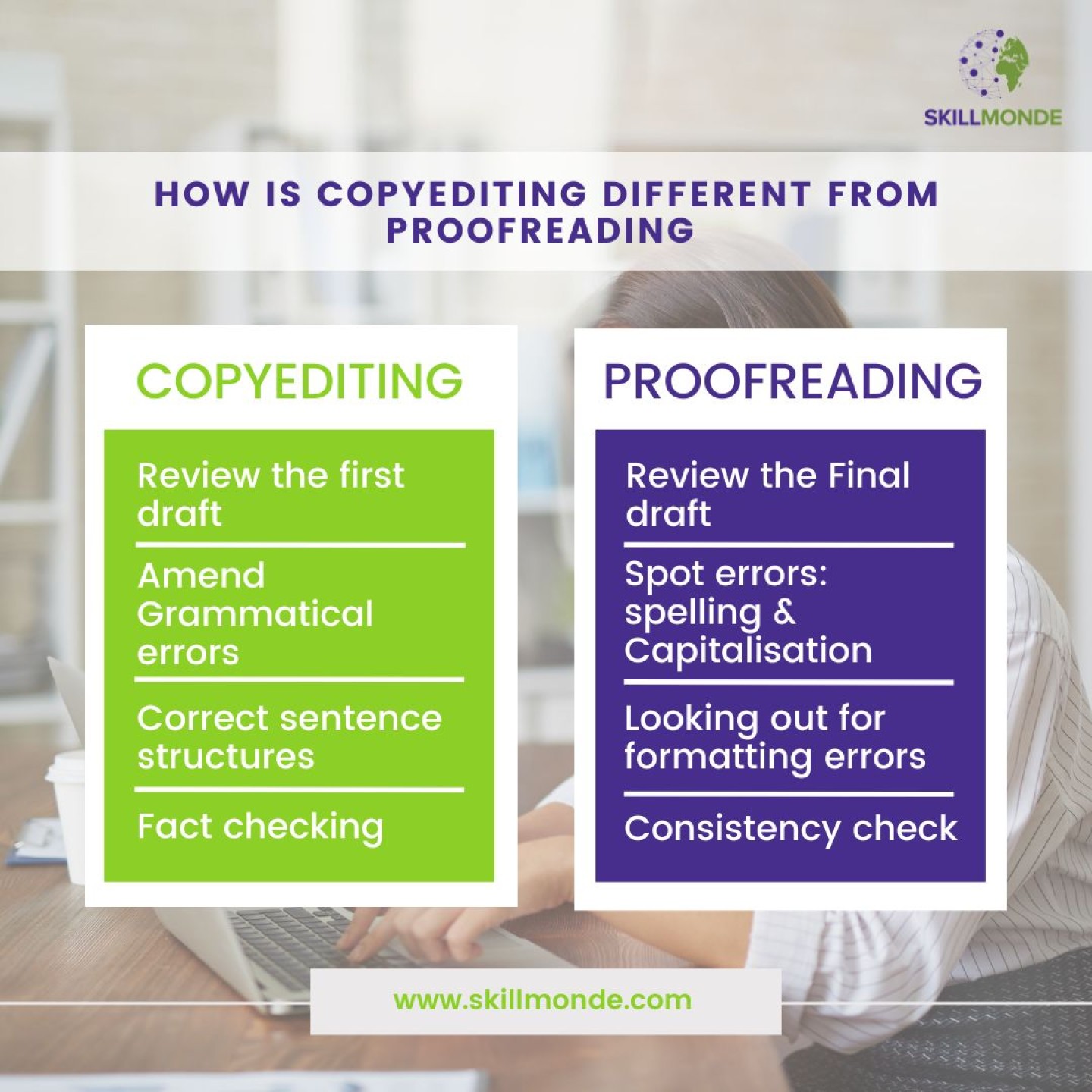
What is proofreading?